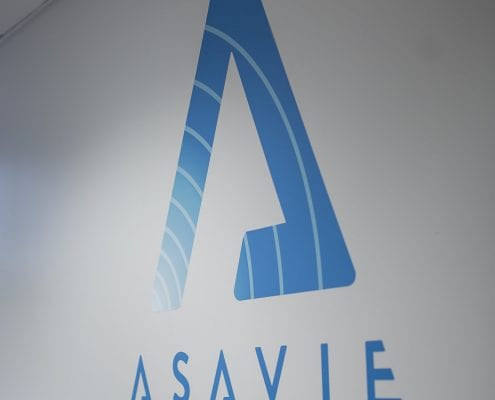Improved Competitiveness Drives Growth in Every Sense for Phonovation
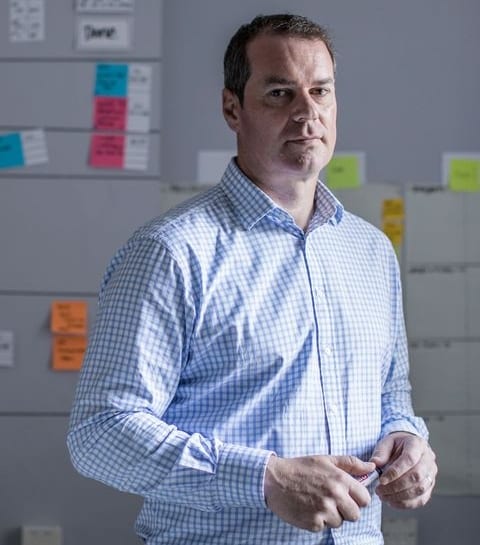
“I knew that there must be a better way of working and I went to Enterprise Ireland and said we had an excellent team, but we weren’t changing fast enough. They said there was only one answer: to go LEAN.”
Key Takeouts:
- Automated voice and business SMS provider Phonovation undertook the LEAN transformation programme in 2015.
- Profits have increased year-on-year since completing the programme: 150% in 2015, 240% in 2016, and 140% in 2017.
- Phonovation’s growth shows no signs of stopping, with over 200 million messages a year going through their software each year.
Case Study: Phonovation
In 2015, automated voice and business SMS provider Phonovation decided it needed to change in order to become more competitive. That’s what led the company to begin working with Enterprise Ireland on a LEAN transformation programme.
Phonovation was already the leader in its field in Ireland, but Chief Executive Gavin Carpenter believed a step up in performance was necessary.
“I had completed a masters in management in UCD in 2013,” he explains. “I knew that there must be a better way of working and I went to Enterprise Ireland and said we had an excellent team, but we weren’t changing fast enough. They said there was only one answer: to go LEAN. A development adviser came out to us and explained it. There was complete buy-in to the concept from everyone here.”
Implementing LEAN drives dramatic growth
Growth since then has been little short of dramatic, with profits climbing by hundreds of percent since 2015.
“It has been incredibly powerful for us,” Carpenter says. “Profits increased by 150% in 2015, 240% in 2016, and 140% in 2017. We have also increased staff numbers from 16 to 26 in that time. We have grown in every sense thanks to our improved competitiveness.”
Phonovation was the first company in Ireland to provide premium-rate telephone services for TV, delivering services for popular programmes like Where in the World and The Late Late Show.
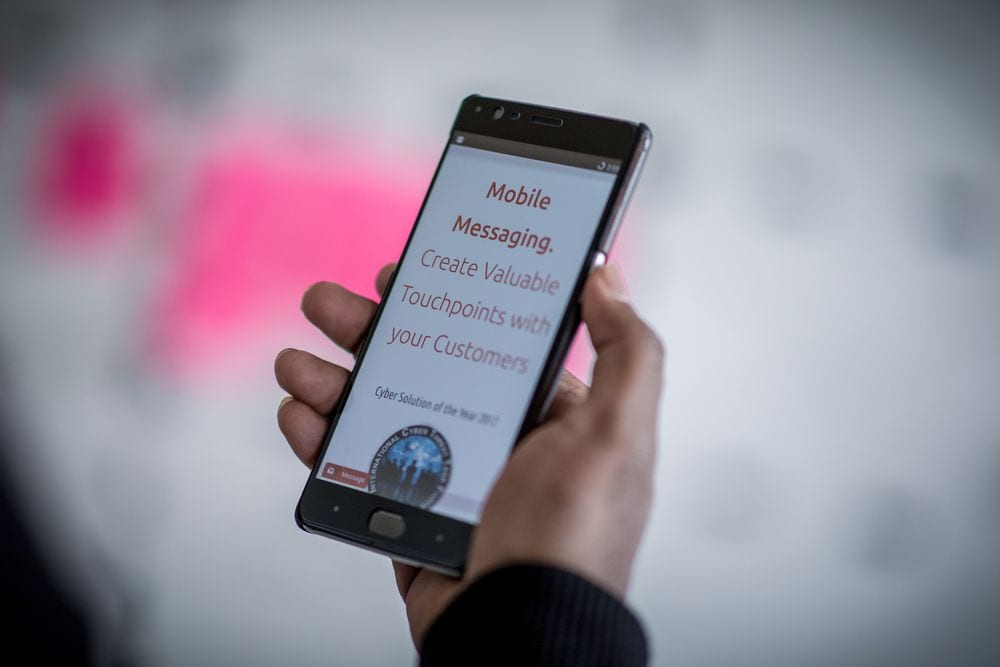
“We started to roll out business offerings in 2005,” says Carpenter. “Running premium-rate services for TV shows and so on gave us the ability to handle very large volumes of calls. We could run the service for TV in the evenings and offer business services during the day. We quickly became the largest SMS application to person (A2P) provider in Ireland. When your bin company texts you to let you know when your collection is due to take place, that’s A2P. Over 200 million messages go through our software each year.”
While consumers may be sending fewer text messages, SMS has seen year-on-year growth every year since 2011, mainly due to increased business usage.
“SMS is very effective at generating reaction and response,” Carpenter explains. “There is a 95% reaction rate for SMS, as opposed to 15-20% for email. It’s expected to continue to grow until the mid-2020s. During the winter storms, we were sending one million messages a day to parents around the country, letting them know about school closures and reopenings. It’s an essential service these days.”
Working with Enterprise Ireland on LEAN
Working with Enterprise Ireland on the LEAN programme brought about considerable efficiency improvements.
“It taught us how to identify and attack waste in the business. There are seven types of waste and each of them feeds into each other. Overprocessing is typical in IT, for example. You might build a website for a customer that does seven things when the customer only wants five. 20% of the time is spent doing things that are not needed. Waste is anything that doesn’t deliver value to customers.”
And the elimination of waste has delivered enhanced competitiveness.
“When we talk about competitiveness, we talk about delivering value to customers while still making a profit. Every sale we make is based on return on investment. That makes us very competitive. We tell customers how much they will save, or how much additional revenue they will generate, as a result of using our solution. One of our largest customers has a return on investment of seven to one from our solution – for every €100,000 they spend with us they make €700,000 in additional revenue. It makes it very easy to close deals. We put a huge amount of effort into delivering the maximum return on investment for customers.”
The future will see a mix of domestic and international growth as well as new product introductions. “We are going to grow overseas, mainly through Irish customers with international footprints. We have also developed a fintech product, which is a security solution for SMSs sent by banks. It is used by one banking customer in Ireland already and we were recently in Frankfurt with Enterprise Ireland presenting it to banks there.”
Learn more about Enterprise Ireland’s Competitiveness supports here.

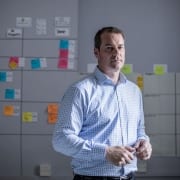


 The company recently introduced 10,000ft, a resource management and time-tracking software programme. “It allows us to track hours and integrates with our accounts process. We are trialling it as part of changes to our internal management processes designed to boost efficiencies and drive competitiveness across the board, from concept through to delivery.”
The company recently introduced 10,000ft, a resource management and time-tracking software programme. “It allows us to track hours and integrates with our accounts process. We are trialling it as part of changes to our internal management processes designed to boost efficiencies and drive competitiveness across the board, from concept through to delivery.”

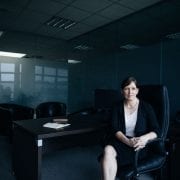
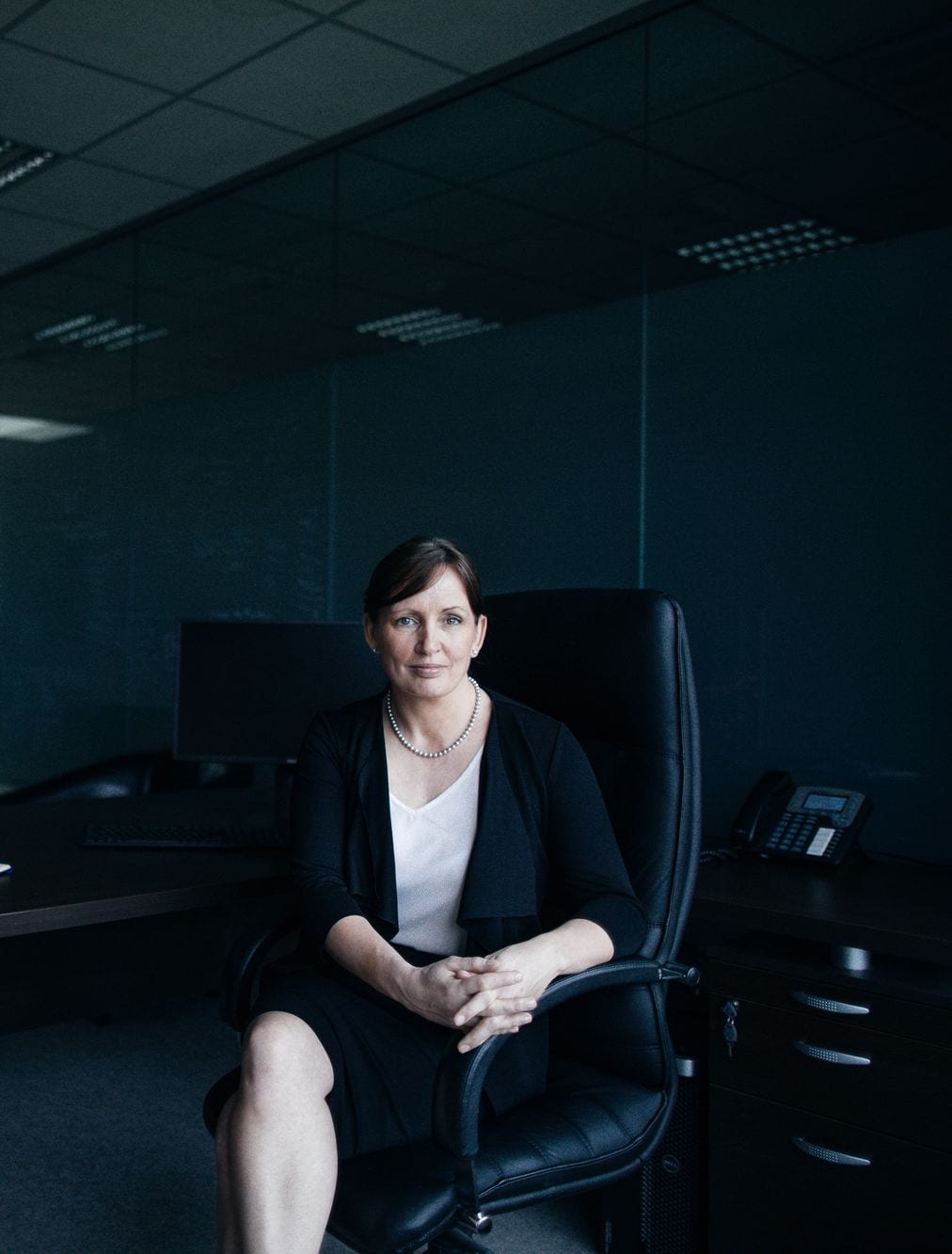 “You can’t just go into a market the size of the UK believing you will do the same things you do in Ireland. We decided to target the reseller market for our incentive product in the UK. Going the reseller rather than the direct route will increase our reach greatly.”
“You can’t just go into a market the size of the UK believing you will do the same things you do in Ireland. We decided to target the reseller market for our incentive product in the UK. Going the reseller rather than the direct route will increase our reach greatly.” PerfectCard was the first company in its space to receive e-money authorisation from the
PerfectCard was the first company in its space to receive e-money authorisation from the 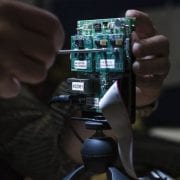





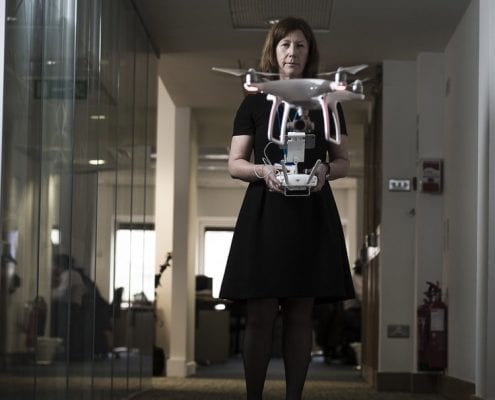

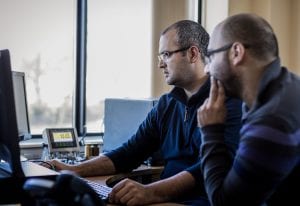 The company initially looked at the UK and, with Enterprise Ireland assistance, has enjoyed considerable success in the market. “Our export sales have trebled over the past three years. That’s still a small part of the business but all growth is being driven by international markets. We are now looking at opportunities in Canada, the US and Australia. They use the English language and are mature markets with similar food and meat processing sectors and standards to our own. It’s at an early stage for now but that’s where we see future growth coming from.”
The company initially looked at the UK and, with Enterprise Ireland assistance, has enjoyed considerable success in the market. “Our export sales have trebled over the past three years. That’s still a small part of the business but all growth is being driven by international markets. We are now looking at opportunities in Canada, the US and Australia. They use the English language and are mature markets with similar food and meat processing sectors and standards to our own. It’s at an early stage for now but that’s where we see future growth coming from.”


